How To Treat Chronic Dandruff: 11 Effective Remedies
Overcome the challenges of scalp flaking with proven remedies and targeted care.
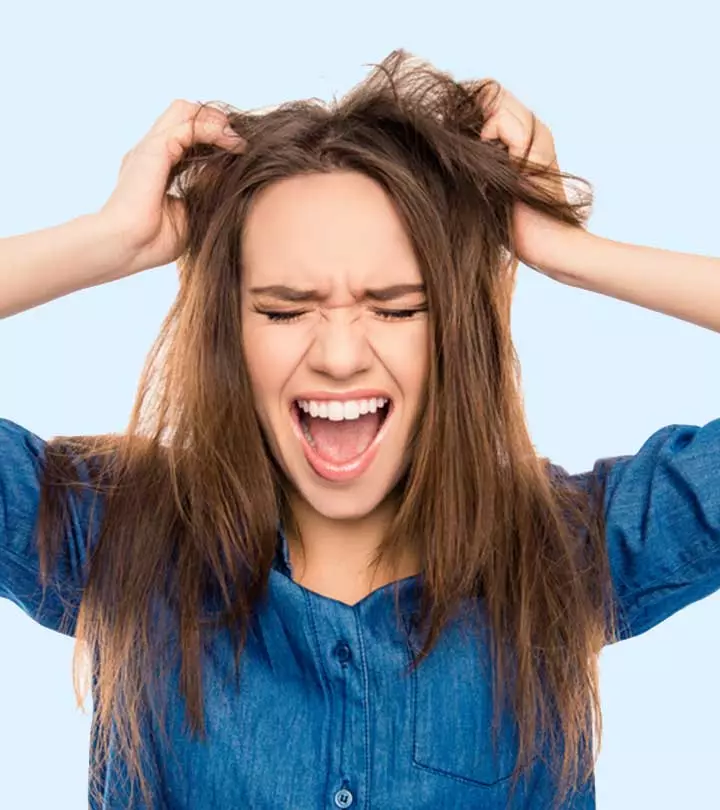
Image: Shutterstock
Dandruff is a common scalp issue (1). The two main symptoms are scalp itchiness and flaking, which can be addressed with antifungal shampoos. However, dandruff might resurface and become a chronic issue. If you wonder how to treat chronic dandruff, we can help.

Chronic dandruff is hard to treat without addressing the underlying cause. Determining the cause and using prescribed medication, shampoos, and home treatments can effectively treat chronic dandruff. Scroll down to learn more about the causes and treatments.
In This Article
What Is Chronic Dandruff?
Increased skin flaking, scalp itching, and recurring dandruff is known as chronic dandruff (2). This form of dandruff may appear suddenly and become severe over a period.
There are three factors that cause chronic dandruff. Check them out in the next section.
What Causes Chronic Dandruff?
- The fungus Malassezia: This microorganism uses lipase, an enzyme, to break down scalp sebum to oleic acid. Oleic acid penetrates the top layer of the scalp and causes inflammation. This leads to increased skin flaking and scalp itching (2). Sometimes, the skin inflammation can spread to other body parts and cause dandruff-like symptoms. This kind of severe dandruff is known as seborrheic dermatitis.
- The yeast Pityrosporum ovale: It causes severe inflammation of the scalp and skin, leading to dandruff and seborrheic dermatitis (3).
- Contact Dermatitis: Using hair care products with ingredients that may irritate the skin leads to several scalp conditions, one of them being chronic dandruff. It occurs when the scalp comes in contact with shampoos, hair gels, hair creams, and conditioners that contain a skin irritant. If you notice any kind of issue or irritation, discontinue using the products that you believe may be causing it to see if the symptoms subside.
- Unclean Scalp: A dirty, dry, or excessively oily scalp is another reason for chronic dandruff.
If you want to treat chronic dandruff, you must target its main cause. Scroll down to check out the different ways you can treat chronic dandruff.
How To Treat Chronic Dandruff
- Use Anti-Dandruff Shampoos
Use anti-dandruff shampoos that contain pyrithione zinc and climbazole. A study published in the International Journal of Cosmetic Science shows that antifungal shampoos containing pyrithione zinc and climbazole, along with silicone, are effective against Malassezia (4). Over-the-counter medicated shampoos containing selenium and ketoconazole are also effective in treating severe dandruff (3), (5). Heres a list of the best anti-dandruff shampoos that you can buy online.
However, ingredients like coal tar must be avoided, especially by pregnant and lactating women. It can cause skin irritation, make the hair brittle and dry, and cause cancer (6).
- Use Tea Tree Oil
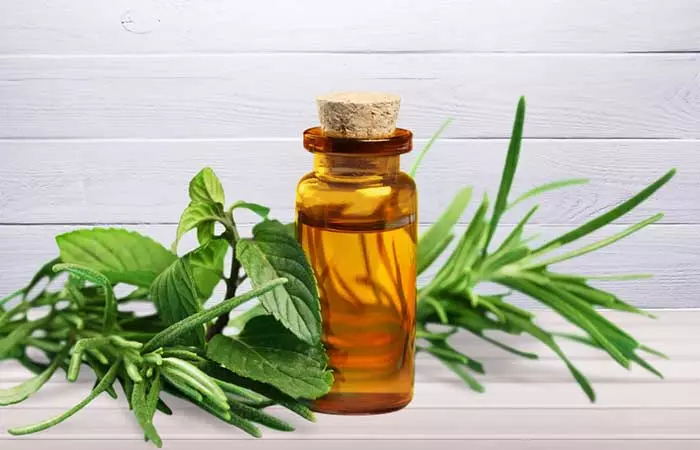
Tea tree oil is an essential oil with antimicrobial and antioxidant properties. It is widely used to treat various skin conditions, including dandruff and seborrheic dermatitis (7). It is also a good home remedy for itchy scalp. A study published in the Journal of the American Academy of Dermatology shows that 5% tea tree oil formulation is effective against Pityrosporum ovale and reduces dandruff and itchy scalp (8).
How To Use
- Mix 1 drop of tea tree oil with 200 ml of coconut oil.
- Apply this oil blend to your scalp.
- Wait for 30 minutes.
- Wash your hair with an anti-dandruff shampoo.
 Quick Tip
Quick TipNote: Do a patch test before applying tea tree oil as it can irritate the skin.
- Use Eucalyptus Oil And Mint Oil
Eucalyptus and Mexican mint oils are essential oils with antifungal properties. Adding these oils in anti-dandruff shampoos can be an effective OTC treatment for dandruff (9).
How To Use
- Mix 1 drop each of eucalyptus and Mexican mint oils with your anti-dandruff shampoo or 100 ml of coconut oil.
- Massage this oil blend onto your scalp gently without scratching.
- Use Shikakai, Amla, And Black Cumin
Shikakai, amla (Indian gooseberry), and black cumin are Ayurvedic herbs that have medicinal properties. A study shows that mixing equal parts of shikakai, amla, and black cumin with a pinch of camphor in coconut oil is a great way to treat dandruff (10).
How To Use
- Mix 1 tablespoon of shikakai powder, amla powder, and black cumin powder in a bowl.
- Add a pinch of camphor. Transfer this mixture to a brown glass bottle.
- Add 200 ml of coconut oil and shake the bottle well.
- Apply the mixture to your scalp the next day.
- Wait for 30 minutes and wash your hair with an anti-dandruff shampoo.
- Use Coconut Oil And Turmeric
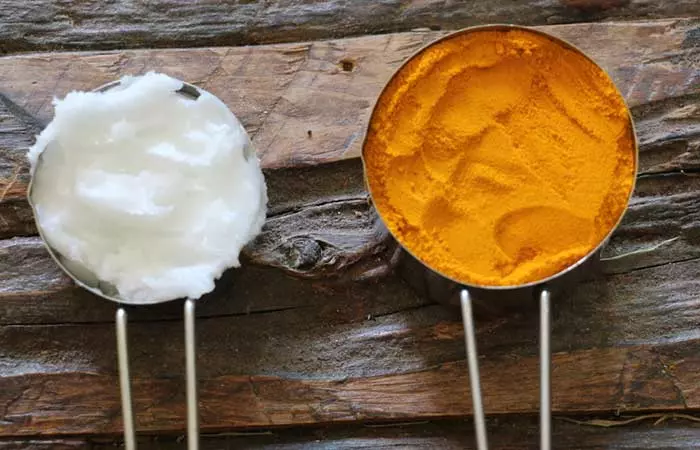
Coconut oil has anti-inflammatory properties, and turmeric has antifungal properties. A study showed that mixing them and applying to the scalp is as effective as 2% ketoconazole shampoo for reducing scalp itching, scaling, and hair loss due to dandruff (11).
How To Use
- Mix 1 teaspoon of cosmetic-grade turmeric powder with 200 ml of coconut oil.
- Massage this mixture onto your scalp for 20 minutes.
- Shampoo your hair.
- Use Lemon And Olive Oil
Lemon is loaded with vitamin C, flavonoids, zinc, and citric acid. These plant chemicals are effective against chronic dandruff. A study recommends mixing lemon juice with olive oil or using lemon peel with Multani mitti (Fuller’s earth) and sandalwood powder as an anti-dandruff treatment (12).
How To Use
- Mix equal parts of lemon juice and olive oil.
- Massage this mixture onto your scalp.
- Wait for 20 minutes and wash with lukewarm water.
Or,
- Mix equal parts of lemon peel, Fuller’s earth, and sandalwood powder with water.
- Apply this mixture as a hair mask.
- Let it be semi-dry. Do not scratch your scalp.
- Wash your hair thoroughly.
 Quick Tip
Quick Tip- Use Fenugreek And Coconut Oil
Fenugreek seeds contain proteins and nicotinic acid, which help reduce dandruff naturally (12). Coconut oil has anti-inflammatory properties and is a good medium for applying fenugreek to the scalp.
How To Use
- Mix 2 teaspoons of fenugreek seeds with 75 ml of coconut oil.
- Heat this mixture and let it cool until warm. Strain the oil.
- Massage your scalp with the oil for 20 minutes. Do not scratch.
- Wash your hair with an anti-dandruff shampoo.
- Use Neem And Yogurt
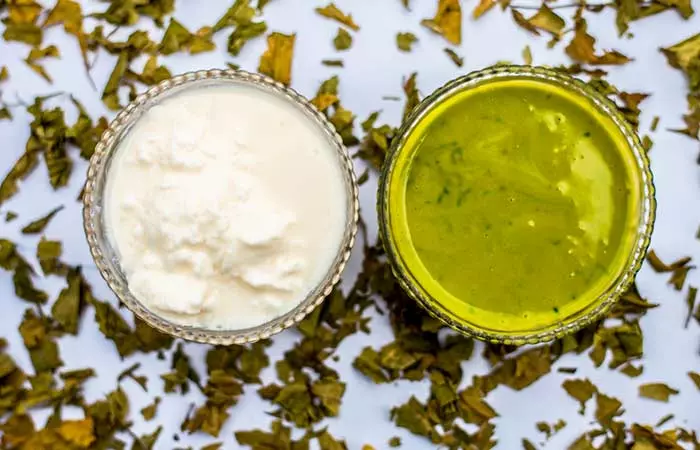
Neem has antifungal and antiviral properties. Scientists recommend using need powder, neem oil, and neem leaves with yogurt, shikakai powder, and amla powder to eliminate dandruff (12).
How To Use
- Mix 2 teaspoons of neem powder and 2 tablespoons of yogurt.
- Apply this mixture to your scalp.
- Wait for 30 minutes and wash your hair.
Or
- Mix equal parts of neem powder, shikakai powder, and amla powder with water.
- Apply this mixture to your scalp and wash after 30 minutes.
You can also apply neem oil to your scalp and wash it after 30 minutes.
- Use Aloe Vera And Amla
Aloe vera has antifungal and antibacterial properties. Amla is a good source of vitamin C, which helps get rid of dandruff (12).
How To Use
- Mix amla powder and aloe vera gel.
- Apply this mixture to your scalp.
- Wait for 30 minutes and wash your hair.
- Use Baking Soda
Baking soda exhibits antifungal properties, hence it can address the fungal infection responsible for causing dandruff (13).
How To Use
- Mix 2 tablespoons of lemon juice with 1 1/2 teaspoons of baking soda to create a thin paste.
- Apply the paste to the scalp and massage it in.
- Leave it on for 2-3 minutes.
- Wash your hair with cool water.
- Repeat this process 2 times a week for best results.
- Use Aspirin
The answer to how to get rid of dandruff quickly is aspirin. It contains salicylic acid, a key ingredient, in many dandruff shampoos that are effective in managing flaky skin (14).
How To Use
- Crush 2 aspirin tablets to form a powder.
- Mix the powdered aspirin with your regular shampoo to create a paste.
- Gently massage your scalp with the paste.
- Leave the mixture on your scalp for 2-3 minutes.
- Wash your hair with cool water to remove the aspirin mixture.
- Try this twice a week for effective dandruff control.
These are the most effective ways to treat chronic dandruff. Start treatment as soon as you see the problem. Using anti-dandruff shampoos can make your hair dull. Hence, choose a shampoo that contains silicones. You can also apply argan oil after washing your hair to retain its shine.
Chronic dandruff is characterized by elevated skin flaking, scalp irritation, and recurrent dandruff. This type of dandruff can start abruptly and worsen over time. But do not be worried! With careful treatment, chronic dandruff can be addressed. Maintaining scalp health is critical to achieving this. Chronic dandruff can be efficiently treated by determining the reason and using prescribed medicine and home remedies. Shampoo your hair twice a week and follow the home remedies mentioned above. You will be able to eliminate this recurring issue and attain flake-free hair.
Frequently Asked Questions
Should I wash my hair every day if I have dandruff?
No. Wash your hair every alternate day with an anti-dandruff shampoo.
Is dandruff a fungus?
Yes, dandruff is mainly caused by Malassezia, a fungus.
Can dandruff cause baldness?
Yes, untreated dandruff can cause hair loss and baldness.
Is dandruff a fungal or bacterial infection?
There are several types of dandruff. But they are all fungal infections characterized by itching and scaling of the scalp.
Key Takeaways
- Chronic dandruff is characterized by severe flaking and rash on the entire scalp, leading to itching and discomfort. It tends to worsen over time.
- It is triggered by infections caused by yeast-like fungus, using hair care products with harsh ingredients, and an unclean scalp.
- Using home remedies such as tea tree oil, eucalyptus oil, coconut oil and turmeric mixture, lemon and olive oil, fenugreek, and coconut oil may help treat chronic dandruff.
Watch this video as it explains the effective solutions to stop chronic dandruff. Discover remedies, lifestyle adjustments, and common causes of chronic dandruff and how to reclaim a healthy, flake-free scalp.
References
Articles on StyleCraze are backed by verified information from peer-reviewed and academic research papers, reputed organizations, research institutions, and medical associations to ensure accuracy and relevance. Read our editorial policy to learn more.
- HOW TO TREAT DANDRUFF
https://www.aad.org/public/everyday-care/hair-scalp-care/scalp/treat-dandruff - Preparation of Strong Antidandruff Shampoo Using Medicinal Plant Extracts: A Clinical Trial and Chronic Dandruff Treatment
https://selenta.su/research/866bb9b44345789aeaafc28c4e1e954cdcb8.pdf - Successful treatment and prophylaxis of scalp seborrhoeic dermatitis and dandruff with 2% ketoconazole shampoo: results of a multicentre, doubleblind, placebocontrolled trial
https://onlinelibrary.wiley.com/doi/abs/10.1111/j.1365-2133.1995.tb08680.x - Enhanced efficacy and sensory properties of an antidandruff shampoo containing zinc pyrithione and climbazole
https://onlinelibrary.wiley.com/doi/abs/10.1111/ics.12007 - The role of ketoconazole 2% shampoo in the treatment and prophylactic management of dandruff
https://www.tandfonline.com/doi/abs/10.3109/09546639009086727 - PSORIASIS TREATMENT: COAL TAR
https://www.aad.org/public/diseases/psoriasis/treatment/medications/coal-tar - A review of applications of tea tree oil in dermatology
https://onlinelibrary.wiley.com/doi/abs/10.1111/j.1365-4632.2012.05654.x - Treatment of dandruff with 5% tea tree oil shampoo
https://www.jaad.org/article/S0190-9622(02)00313-4/abstract - Studies on the antidandruff activity of the essential oil of coleus amboinicus and eucalyptus globulus
https://www.sciencedirect.com/science/article/abs/pii/S2222180812602503 - Folklore remedies for dandruff from tirumala hills of andhra pradesh
https://www.researchgate.net/publication/224898001_Folklore_remedies_for_dandruff_from_tirumala_hills_of_andhra_pradesh - Determination of Effectiveness Traditional Cosmetics of Coconut Oil and Turmeric as Anti-Dandruff
https://www.atlantis-press.com/proceedings/iconhomecs-19/125934898 - Overview of Dandruff and its Remedies with Allopathy and Ayurvedic Therapy
https://www.academia.edu/44449476/Overview_of_Dandruff_and_its_Remedies_with_Allopathy_and_Ayurvedic_Therapy - Antifungal activity of sodium bicarbonate against fungal agents causing superficial infections
https://pubmed.ncbi.nlm.nih.gov/22991095/ - Dandruff: The most commercially exploited skin disease
https://www.ncbi.nlm.nih.gov/pmc/articles/PMC2887514/#
Read full bio of Donna Kay Parrish
Read full bio of Arshiya Syeda
Read full bio of Anjali Sayee
Read full bio of Monomita Chakraborty







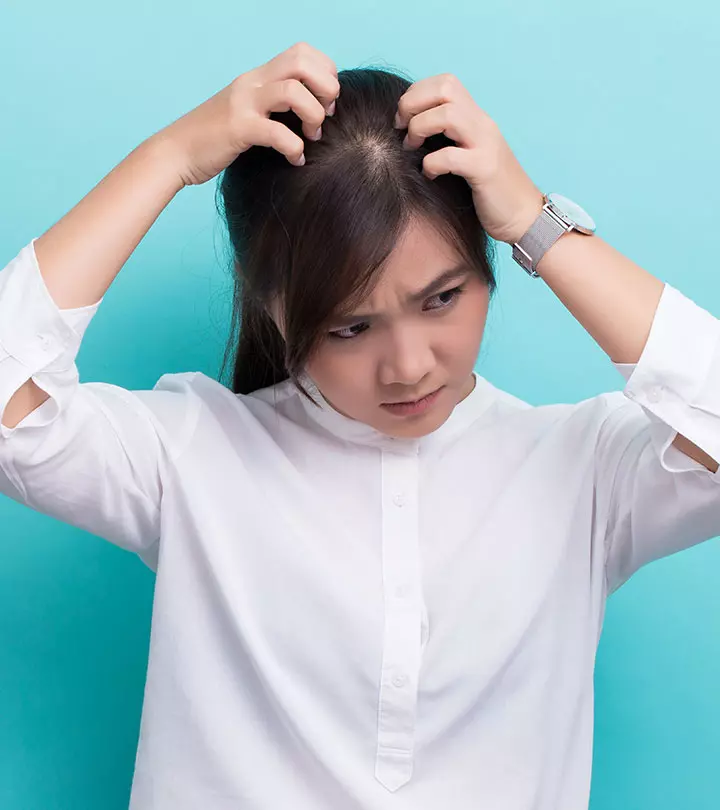
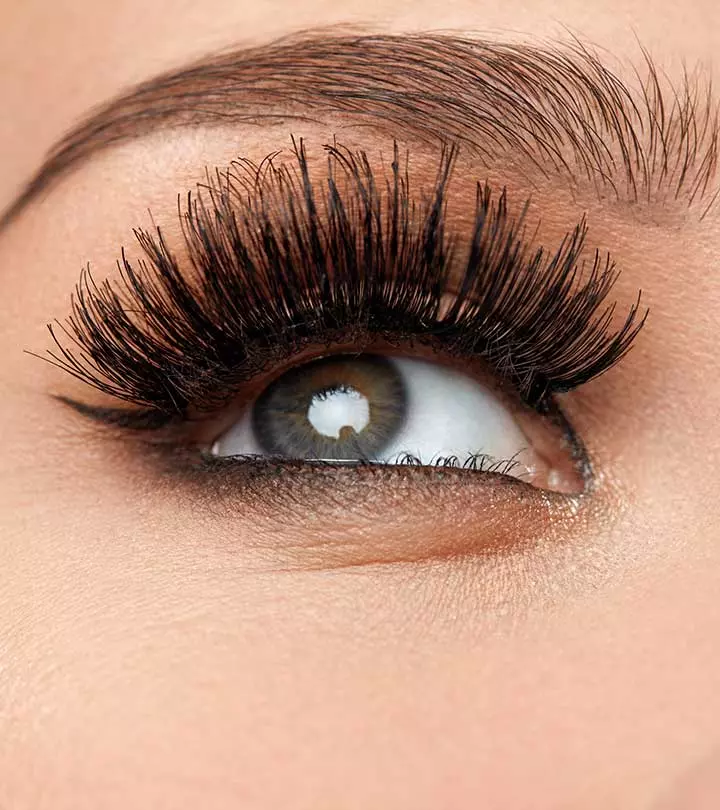
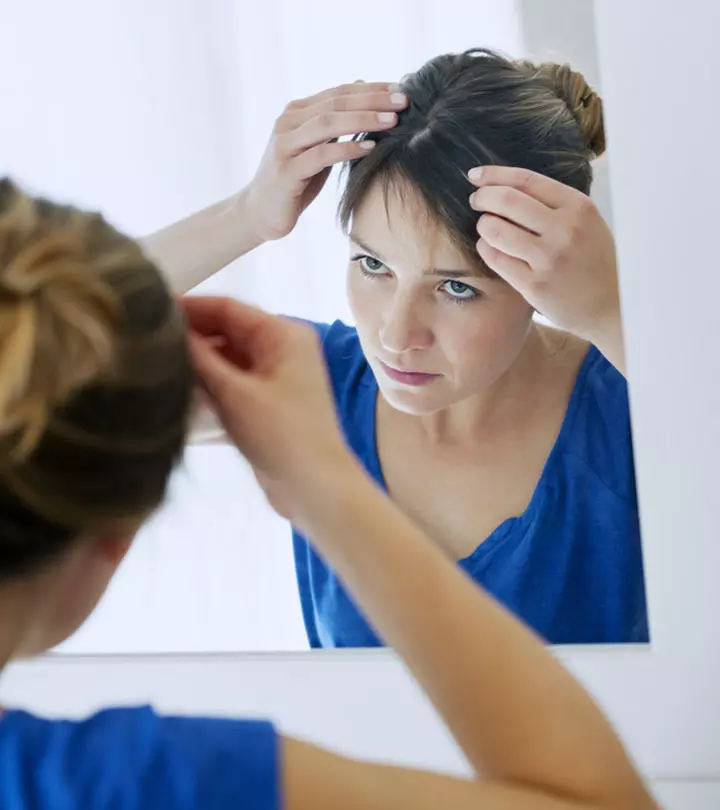
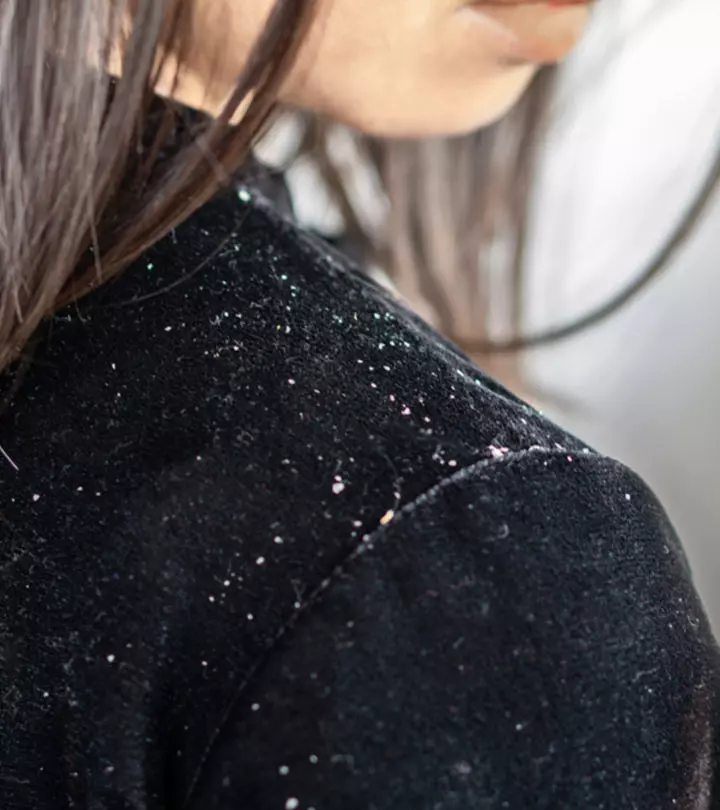
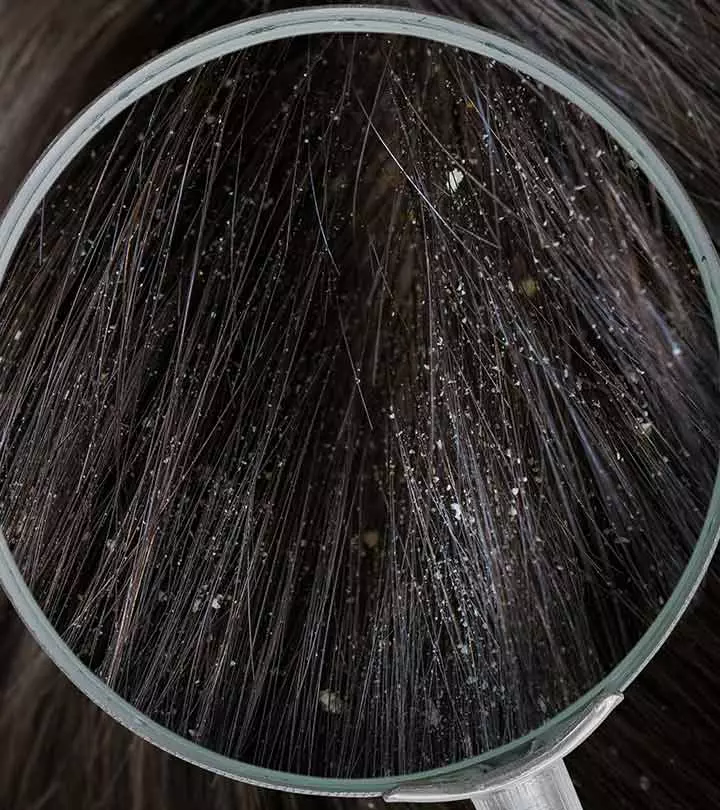

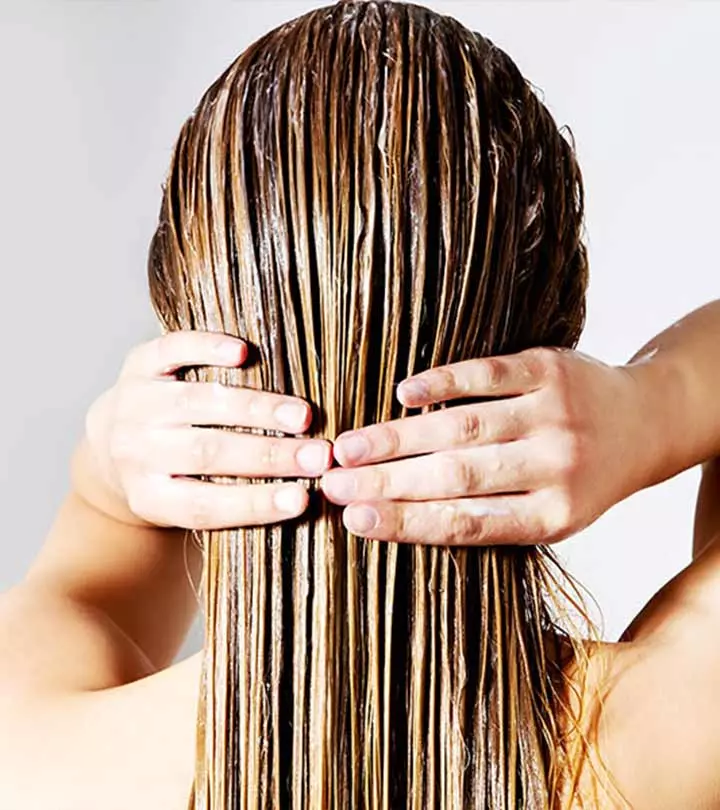
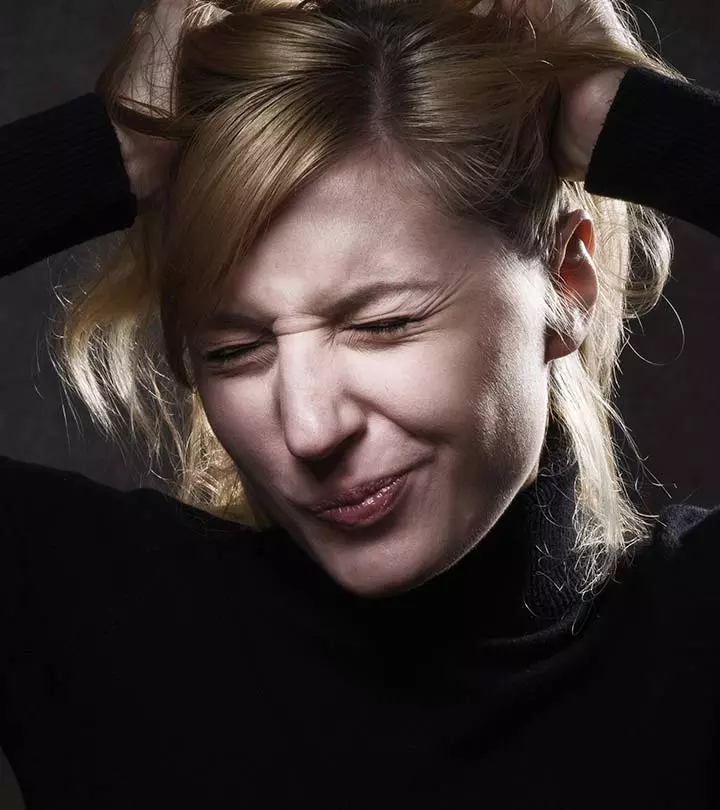
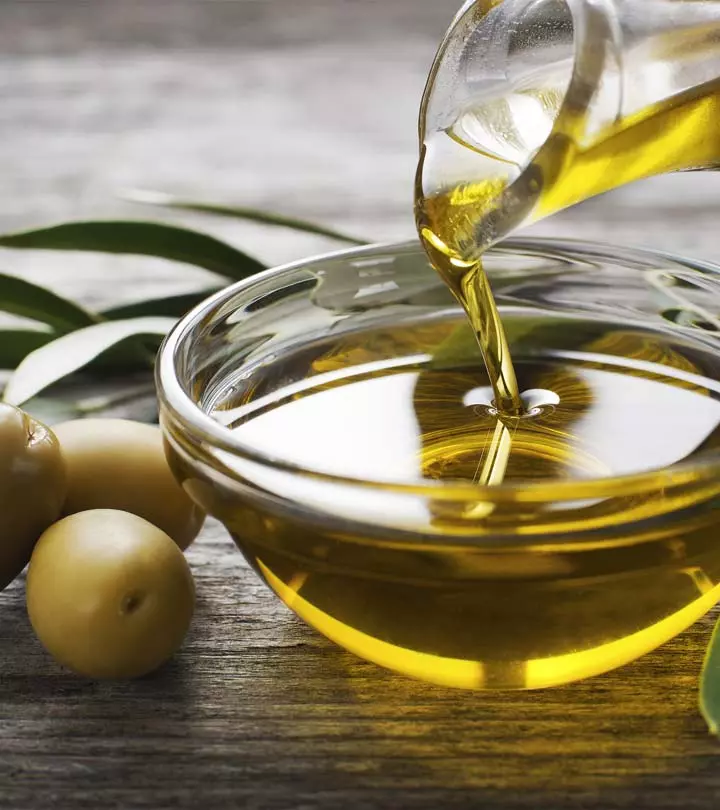
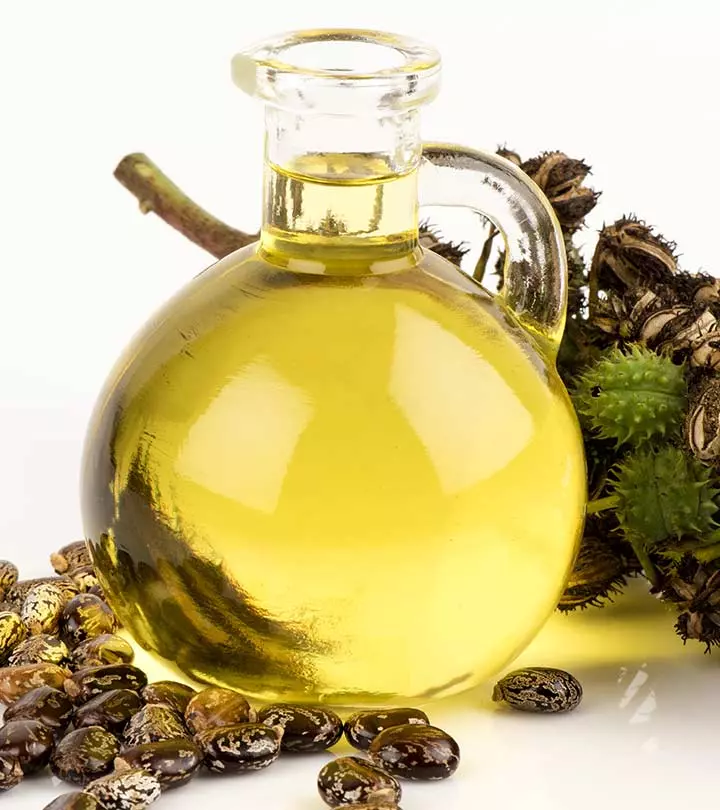
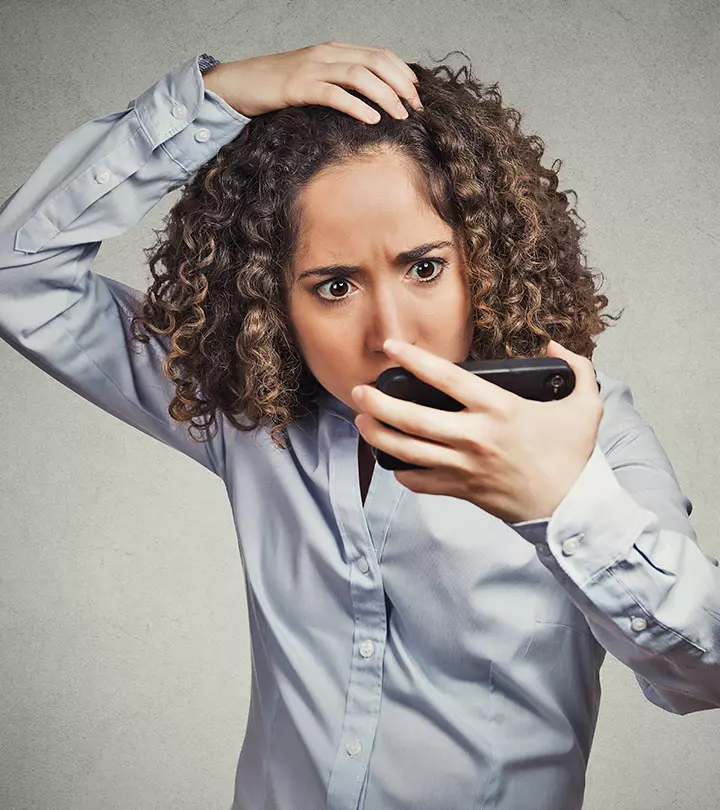
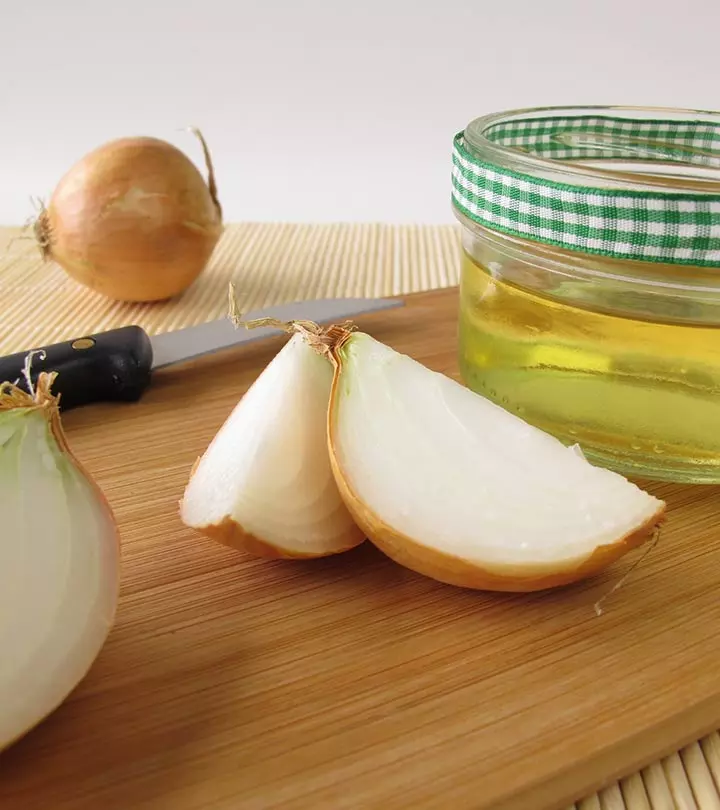
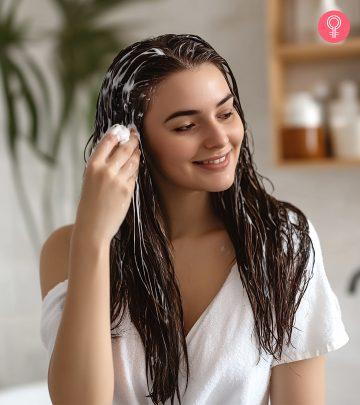
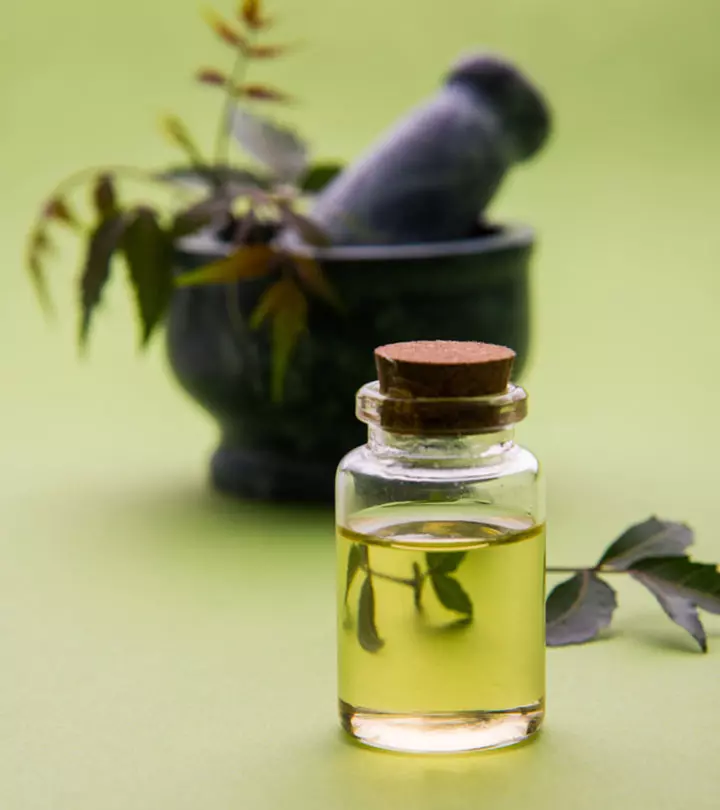
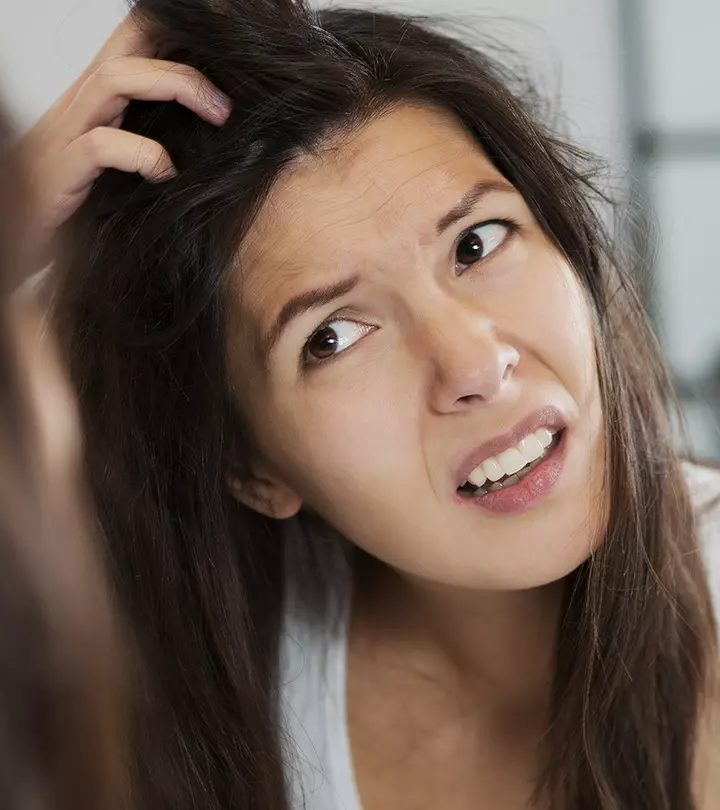
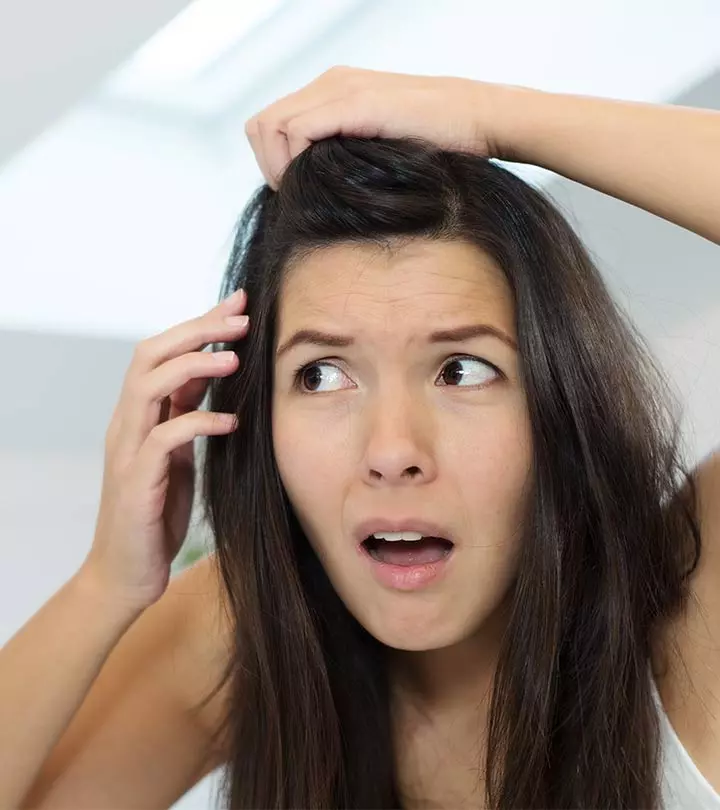
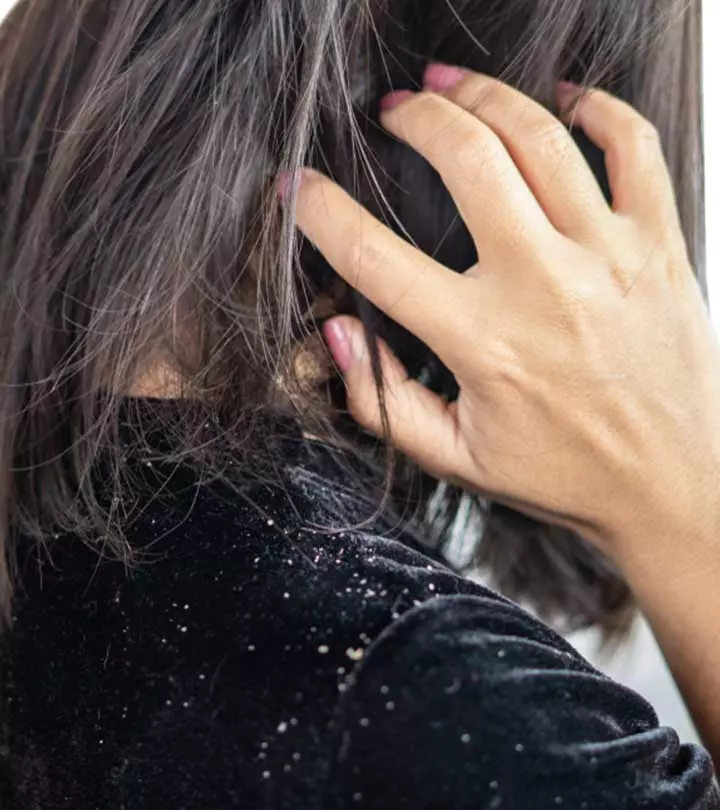
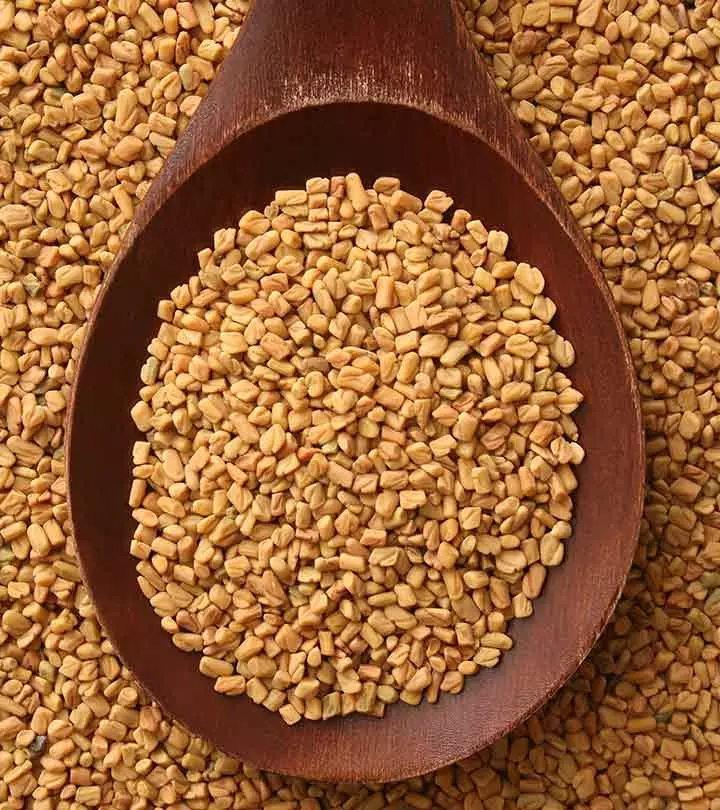
Community Experiences
Join the conversation and become a part of our empowering community! Share your stories, experiences, and insights to connect with other beauty, lifestyle, and health enthusiasts.